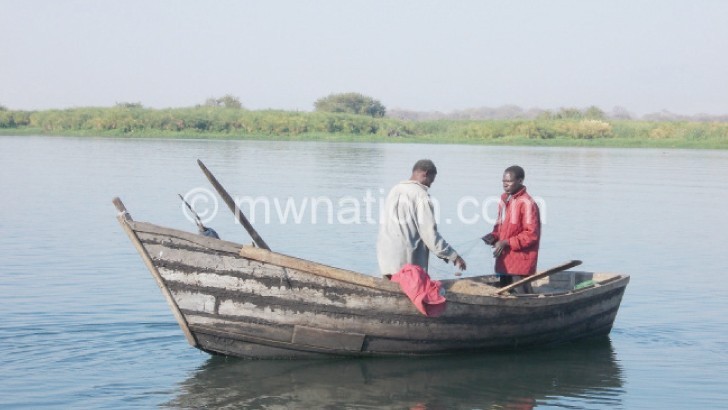Overfishing torments fishers
Shoreline communities in Malawi face an uncertain future as commercial fishers wipe out fish from shallow waters.
As they catch less and less, some villagers in Mangochi on the southern shores of Lake Malawi bemoaned overfishing by boatloads of profit-making crews in breeding grounds.
“These arrive in big boats, armed with nets that rake up even the smallest fish,” said village head Machakwani . “They come and go, leaving the lake almost empty.”

The continent’s third-largest freshwater lake is home to almost 1 000 fish species, but many are disappearing and catches are falling due to overfishing and use of banned gear.
In Mangochi, the locals in traditional authorities (T/As) Nankumba and Namabvi have formed beach village committees (BVCs) and fishers associations (FAs) to stop this.
They are working closely with Centre for Environmental Policy and Advocacy (Cepa) to achieve sustainable fish in the area.
The participatory response to illegal fishing methods is part of a five-year Fisheries Integration of Society and Habitats (Fish) project funded by United States Agency for International Development (USAid).
Machakwani BVC chairperson Lisbon Harawa is worried that unregulated fishing by commercial crews, especially use of trawlers in shallow waters, is depleting fish in breeding grounds.
“These trawlers in undesignated stretches that are less than three-metre deep wipe out juvenile fish and destroy key breeding sites just when small-scale fishers are observing closed fishing season. This will inevitably lead to dwindling fish population,” he says.
According to the fisher, the use of illegal fishing gear, coupled with breaches of the three-month ban for fish to multiply, erode community-led efforts to roll back the waning of the lake’s fish population.
He laments: “The illicit and destructive tendencies by commercial fishers put our livelihoods under threat.
“Our lives depend on fish. If we wipe out all the fish, how will we survive?”
Village head Machakwani wants an end to “reckless fishing methods”.
“If not checked, the current state of affairs in the fisheries sector will further impoverish poor families which entirely depend on fishing,” he says.
Machakwani urges against selective justice in fishing grounds, accusing patrollers from Fisheries Department of sidestepping large-scale fishers at the expense of artisanal.
Says the traditional leader: “I wonder why the law usually applies to the poor while the rich fish freely.
“While small-scale fishers are observing closed fishing season to ensure fish breed without disruptions, a lot of commercial fishers are fishing freely using trawlers in breeding grounds. This is unacceptable.”
He appeals to the locals, government agencies and non-governmental organisations to swiftly intervene and work together to crack down on fishers using banned fishing gear.
Jeremiah Mwawa, a commercial fisher from Malembo in T/A Nankumba, said frequent patrols on the lake would coerce defiant fishing to adhere to fishing regulations.
“We are always monitored by officials from the Fisheries Department and BVCs are empowered to report any illicit activity by any fisher,” he said.
The BVCs often mete out stiff punishment on lawbreakers, including confiscation of fishing materials.
Cepa programme officer Stanley Mvula said the future looks bleak if some commercial fishers will continue flouting fisheries regulations.
Overfishing and illegal gear threaten to deplete a diversity of fish that breed in water spots—less than five metres deep—near the shoreline.
Cepa, through Fish Project, is collaborating with the Fisheries Department, beachside communities and Fishers Association of Malawi (Fisam) to train BVCs and FAs to effectively take part in sustainable fishing. n





